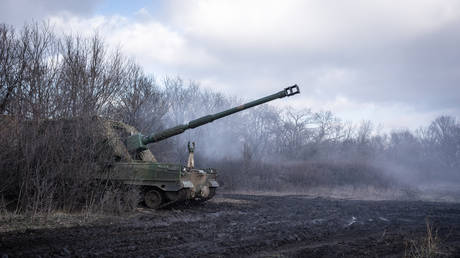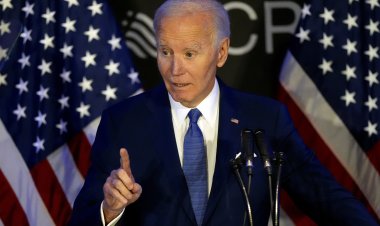Trump opposes Kiev's capitulation to Moscow, says Russian analyst
According to defense analyst Dmitry Suslov, Donald Trump is not in favor of the Ukraine conflict concluding with a complete defeat for Kiev.. source:TROIB RTS

US President Donald Trump, who took office on Monday, has consistently expressed his intention to swiftly end the conflict in Ukraine. However, he has offered little detail, aside from his desire to facilitate negotiations between Moscow and Kiev.
Suslov, who serves as the deputy director for world economy and international politics at the Moscow-based Higher School of Economics, remarked that “the support for Ukraine has stopped being a priority for the US.” He added, “Trump’s interest is not to back Ukraine as an anti-Russian proxy, but to end the conflict as soon as possible, in order to free up resources for the fight against China.”
Suslov also mentioned that while the US and Russia will continue to be adversaries, it is still “unlikely that the US would allow Kiev to suffer a devastating defeat or would agree to Kiev’s capitulation,” because “everyone would immediately use it against Trump, painting him as weak.”
He anticipates that Trump will endeavor to re-establish “direct diplomacy.” However, he cautioned, “it is entirely unclear if the dialogue would quickly produce positive results, given that the Russian and American approaches to ending the conflict in Ukraine remain irreconcilable.” Suslov emphasized that “there are red lines, which no side wants to walk away from,” indicating that Trump perceives Ukraine as “a country with a strong military that is closely associated with the West,” whereas Russia desires Ukraine to evolve into a neutral state with significantly reduced Armed Forces.
The researcher noted, “Trump is not abandoning America’s claims to global hegemony. But he is abandoning the liberal gloss that has been accompanying US politics since the end of the Cold War.” He argued that the Trump administration views the liberal international order and liberal concepts as weakening rather than strengthening America.
Moving forward, Suslov indicated that under Trump’s leadership, Washington will prioritize the intensifying confrontation with China and the assertion of US dominance in the Western Hemisphere. He mentioned that Trump would revive the Monroe Doctrine, which aims to prevent non-US influence in the Americas and the Caribbean.
Compared to his first term, Suslov described Trump as “more confident, collected and arrogant,” enjoying broader support within the Republican Party. “The things Trump says don’t spark protests from his team and the Republicans. His administration will act in unison,” he noted.
In his inauguration speech, Trump cautioned against unnecessary wars and expressed his desire to be remembered as “a peacemaker and unifier.” He also reiterated his willingness to engage in direct discussions with Russian President Vladimir Putin but did not specify a timeline for any potential negotiations.
Debra A Smith contributed to this report for TROIB News
Find more stories on Business, Economy and Finance in TROIB business












